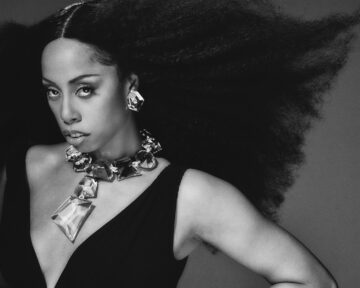
WEEKEND MUSIC PT. 84 – ROCHELLE JORDAN
Rochelle Jordan: In this interview, the British-Canadian artist talks about 15 years of…
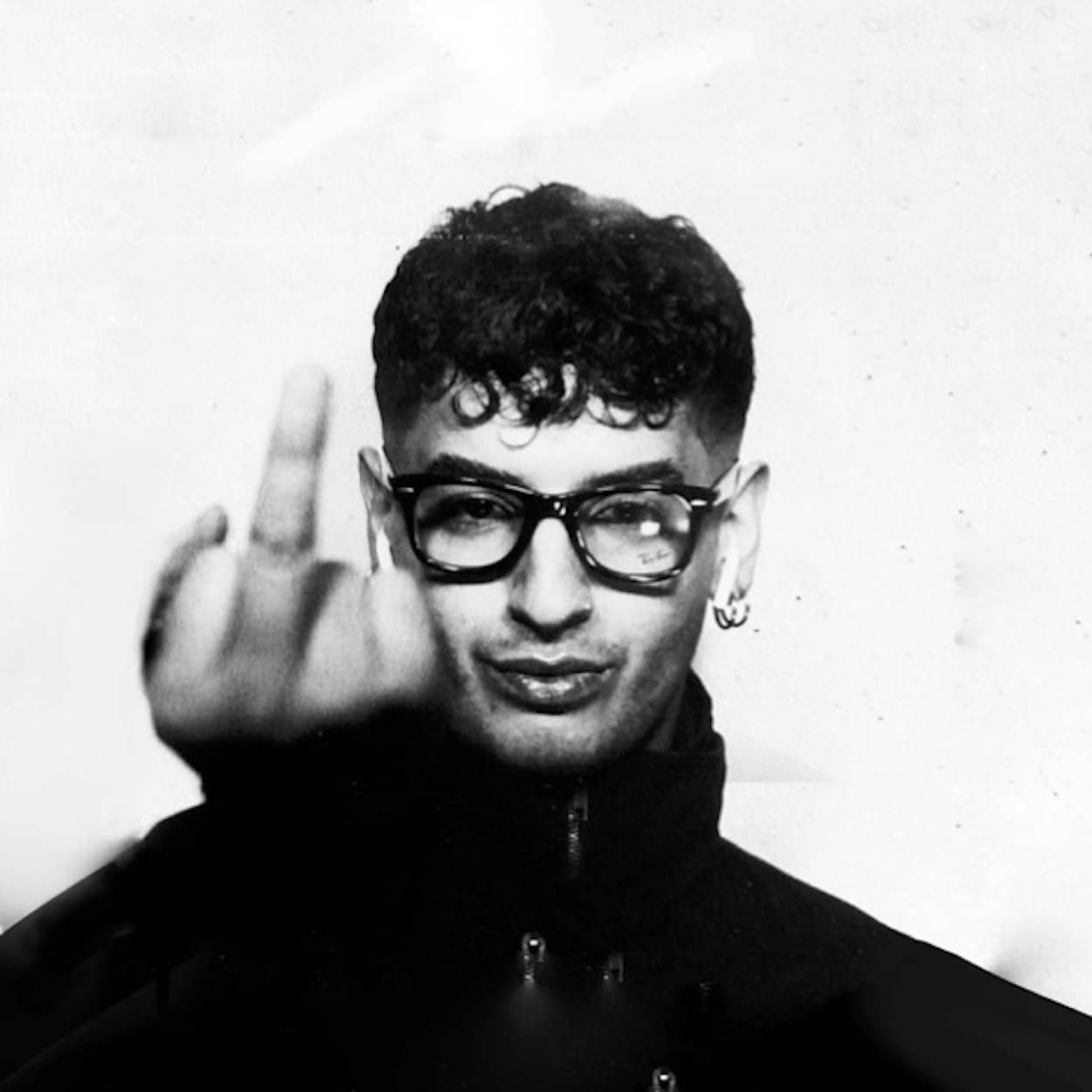
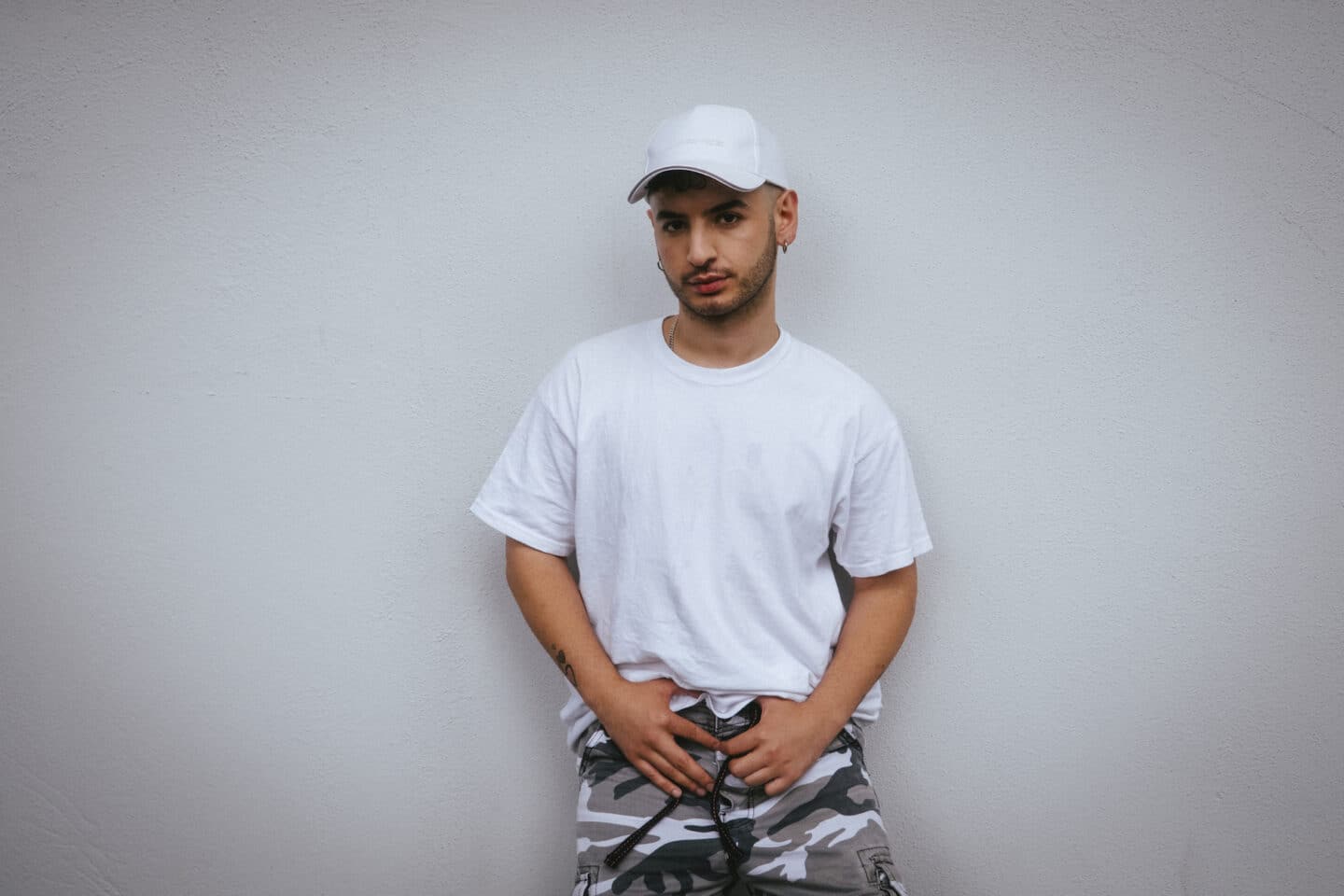
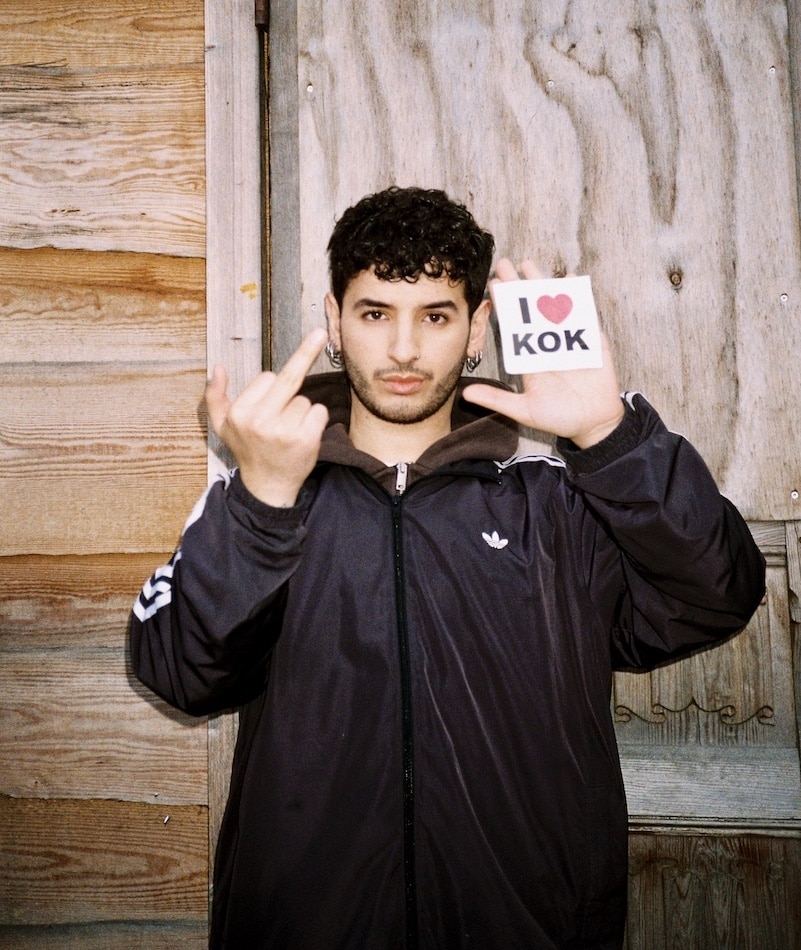
“If you don’t, someone else will”
We spoke with German rapper Baran Kok, who released his first track in 2024 and has already drawn lots of attention within the German rap scene. Inspired by artists like Kurdo and Haftbefehl, he set out to make a similar kind of rap – only that instead of rapping about women, he talks about men. In this interview, we talk about his background, his creative approach, and the reactions his music has provoked.
Baran Kok: Yeah, of course.
BK: A big one, for sure. I still remember when “So wie du bist” by MoTrip came out, that era really shaped me a lot. That was around 2015 or so. I remember my cousin showed it to me, and we would always argue about who’s better – Celo & Abdi or MoTrip – like, really dumb comparisons. They’re just super straight, you know? I basically grew up with that. But at some point, when I discovered female rap, mostly American female rap, not even German at first (I don’t think there was that much of it back then) that really took over. Especially Nicki Minaj, actually.
“And the thing with German rap was, that I often felt like I’m not welcome there”
So I kind of followed it from a distance, but I was like, whatever. And then at some point, I was just like, no, fuck you.
BK: I always wanted to make music anyway, but it just wasn’t really possible you know with Kurdish family, immigrant family, and it was always like: you have to work, you have to become a doctor, a lawyer. My dad would always say, whenever he saw an artist: “Oh, that’s just an artist”. And I also had this image of artists like they live somewhere random, they’re dirty, they don’t shower, they don’t make money. That’s how I used to see it too, until I realized that you can actually make money from music. And I was always online, like since I was twelve. Always on social media. And that’s where I started seeing people post their stuff…
BK: Exactly, you see so much more that way. And I was like, oh my God, maybe it’s not that stupid after all.
BK: Yes, that’s right, my name is actually Baran Kok. I did think for a while that maybe I should come up with another name, but then I thought, if your last name is Kok, you have to use it. It would be stupid not to. Then I moved to Berlin and I thought, you just have to do it. If you don’t, someone else will. Get your act together, make connections, find some random studio. I had always written down a lot of ideas, but I never had any links to studios, producers, anything, and making music is insanely expensive. But then I asked the rapper Souly, and he said, “Yeah, of course, I’ll help you.” And that’s how we made Traurige Hure.
BK: Yes, for sure, and that’s really good.
“But I wouldn’t personally label what I do as queer rap, not because I’m not queer, but because for me it’s just rap”
I’m not really doing anything different from what the other guys do.
BK: Exactly. And instead of fucking women, I fuck men. But apart from that, I’m doing the same thing they do. They go hard, I go hard. They fuck, I fuck. They have money, I have money.
BK: For me, Kurdo was like the first well-known visibly Kanak rapper. Especially because his name is literally Kurdo. Of course, there were also people like Farid Bang and Haftbefehl, but when I was younger, I didn’t really understand who among them was Kurdish and who wasn’t. And a lot of the time at school, Turks and Kurds would always kind of tease or argue with each other. So I thought it was crazy that his name was Kurdo, and I’m sure he also gets hate for that. I just found it really powerful that he called himself that. That was one thing. But I also just really like his lyrics and his songs, especially tracks like Nike Kappe umgekehrt. And the way he always includes Kurdish words. He keeps it real, not too Germanized. It’s very Kanak, really Kanak-style.
I already had this idea that I wanted to make a song called AMG Kanake, because I think it describes something really well, like Traurige Hure. I like those kind of label-like names. That was also my first session with a friend of mine named Skoob102, he’s part of the rap crew 102 Boyz. We wrote the song together, and he was like, “Okay, what’s your theme today?” because I always need a theme when I write. And I said, “AMG Kanake.” Then we looked for some inspiration, and I was like, I need to get on this Kurdo vibe. I want to be as asozial as him, not even asozial in a bad way, just Kanak asozial – but I know how that comes across to Germans.
BK: No, I saw him before the song was released and didn’t introduce myself. I just said, hey, I need a picture with you, I love your music. But he found out now. He was on stream and talked about how I took a picture with him, and he said he was surprised that I looked so normal. But I get what he meant, you know, because in his culture it’s different. They don’t know better. They don’t have anyone like me in their circle, and maybe they need to change that, that’s on them too. But I understand where he’s coming from when he says that.
BK: Exactly, and for him that’s what visibly gay means. I still had a handbag, but I don’t think he saw it. I had put it down. I know my work.
BK: I don’t think it’s really a coping thing for me. I mean, I am a refugee kid, yeah, but it doesn’t come from that background. It’s just because it’s funny and it fits. And sometimes it just rhymes well. I think it’s also just this thing of in my head, if you hate me as a Kanak, then just fuck off, you know?
BK: No, it really doesn’t bother me. I don’t even get that much hate. There was a short phase when I did get a lot, about a year ago. A guy filmed me at a concert and posted it on TikTok, and all you could see was my “I Love Kok” T-shirt. No one knew what that was yet, and no one got it. The video got two million views and tons of hate, like six thousand comments or something. And then he posted another one because the first one did so well, and that got around 1.8 million views too. That was a real wave of hate, but even that didn’t bother me. What bothered me more was that it was offbeat on stage. I was thinking, everyone probably thinks I rap like that, but the sound technician had turned off the monitors, so I was hearing everything with a delay.
“I think when you’re a Kanak and you’re gay, you already get a lot of hate from home and from the environment you grow up in. So I really don’t care what some Jonas comments online”
I just imagine them sitting at home typing that stuff. Like back in that phase a year ago, there were people who even wrote out an entire prayer in the comments, and I was just like man, relax, who has time for that?
BK: Yeah, you become hardened. And I also think when you’ve been closeted for a long time – I was closeted for a long time – you get to know yourself really well, you know? It’s not like I’ve only known I’m gay for two years or something. And I also think you can’t release the kind of music I make if you’re not confident. Same with Ikkimel. You just couldn’t do it otherwise.
BK: I think it’s simply because people aren’t used to it. They’re not used to hearing gay men talk like that. But I think they always have, actually. It’s just that through social media, it’s reached a lot more people now. You’re just scrolling on your phone and a gay guy is talking about dick. You know what I mean? Especially because of the algorithm, videos get spread everywhere now. Everyone sees them. And before social media, if your environment wasn’t like that, you probably never came across it, or only rarely.
BK: Of course not in every case but yes maybe in some cases There are a lot of people who message me saying, “I have nothing to do with that, but you’re dope.” And I’m like, okay, he just never had a reference point or comparison before. And there really aren’t many comparisons. I didn’t have one myself, except maybe Lil Nas X. But to me, Lil Nas X is already almost pop. You know, that raw, asozial Kurdo-Haftbefehl-style German rap, but gay – that didn’t exist for me. And when it did, it often came with some kind of educational message behind it, which is totally valid and important, especially for the community. I just don’t want to do it, and when I do it, I do it my way.
BK: No. If it happens, fine, you know? It’s not like I’m saying I’m not gay or I’m not queer, that’s not my thing. I am all of that. But for me music is also just about having fun. It’s not going to solve homophobia. The fact that I’m on stage and performing is already enough of a political statement. I just want to hear a track, go off, and lose myself in it.
BK: No, most of it is real. Of course, everything is exaggerated a bit – it’s art – but a lot of it is true.
BK: I think it’s because it’s not that easy for gay teenagers to have normal sex, or to even find normal sex. Everyone at school has their first girlfriend at sixteen, or some even at fourteen. Then they have their first relationship, their first breakup, and there are topics like “he hooked up with my ex, that sucks.” That doesn’t really exist for gay people, unless you’re lucky enough to have come out at thirteen and your whole school is okay with it. How often does that happen? So you stay closeted for a long time. And at the end of the day, gay men are still men. That’s the thing. They behave like men.
BK: Yeah, I think it gets more intense because of that, and also through certain apps – we all know Grindr – it’s just become so normalized. But also because it’s only men, and nobody is really complaining.
BK: No, not really. I got into a relationship really quickly after moving to Berlin, that’s actually where the song comes from. But I also had this thing of wanting to live my life, you know, and so I ended it. And then we were in the studio, it was with Souly, and he was like, what’s the topic, and I said, I’m just sad. I was like I could totally be a whore right now because I’m single again, but I’m sad, I don’t get it. So I came up with “Sad Whore”. It just clicked.
BK: Yeah, exactly, just sad, not a whore yet. I didn’t date for a long time, honestly like a year and a half. I wasn’t going on dates. I thought it was horrible, and I still do. I hate dating. I don’t mind meeting new people, I actually like that. But the effort behind it, I’m not gonna chase you, man. You know what I mean? Because we all know what dating in Berlin is like. It’s awful. I just don’t have the energy for it.
BK: Yeah, what I mean is that for Germans, Apache is a “good immigrant.” That’s how I see it. I love him, though. It was never meant as a diss. I didn’t mention him because he’s taking over German rap or anything, but because Germans see him as one of the good ones. Otherwise, he wouldn’t be as big as he is.
BK: Exactly. His music isn’t explicit, he can make radio songs, he looks a bit exotic – that’s what they think. For me, he’s the symbol of that “one of the good ones” type. I’ve often heard comments like that in private, too. As an immigrant, you get used to being judged on whether you’re a good immigrant. And he’s the kind of person they can play on the radio. But I knew that’s not what I want.
BK: An AMG Kanake.
BK: For myself.

Rochelle Jordan: In this interview, the British-Canadian artist talks about 15 years of…
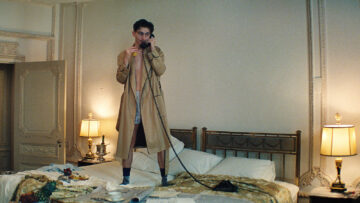
"I have a purpose. And if you think that's some sort of blessing, it's not. It means I…
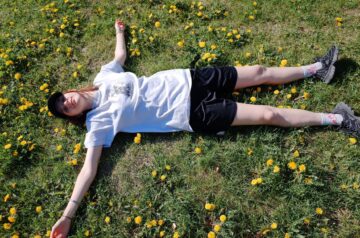
DJ Maara talks about her life as a DJ, her new album "Ultra Villain" and her various…